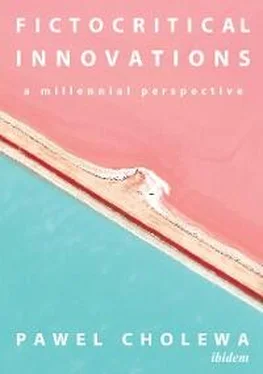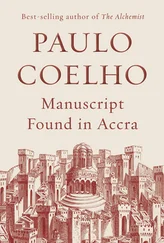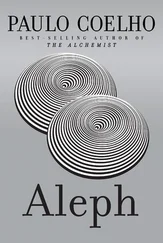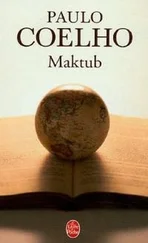2 My dreary eyes wonder and anticipate the future and all other future zeitgeist generations that are yet to come and yet to churn the minds, spirits, and bodies of thoughtful thoughtlessness, thinking tirelessly about all and everything. I wonder about these people, and what they’ll look like and what they’ll say about us! It’s so damn cyclical! We are but another generation and we will not be the last. And we stand at a precipice of wonder and fear and glory; for humankind will always maintain a sense of self that can be best described as frivolously in love with life, regardless of the endless adversity that clouds our endeavours.
3 We ponder in the grey morning in the heaving wooden cabin at the centre of a modern medieval city, having been followed by a bout of drunkenness and confetti brain cell celebrations, and ironic devastations. We sit there and drink stale beer and talk with excited tongues about the word zeitgeist. Time and ghost—a Germanic infusion—an intoxicating cocktail that ensnares and captivates our senses in the most compulsive and reactionary form of excitement. We stand at the edge of reason and jump straight into this fleeting, transitory, yet pivotal moment. We engage and commit to it completely.
4 We sink into a state of exhausted and exalted delirium in which we try to comprehend the bitterness of the sour morning in order to transcend our meagre mortal bodies and become captivated by our own excited notions. Wide-eyed and mad we collaboratively communicate with one another.
5 For we are absolutely and completely engulfed by the system of ethics, attitudes, and morality which we are symptomatically prescribed at an early age—we are nurtured to adhere and abide by certain principles and perspectives from the most impressionable and foetal age. It is the fatal syndrome and entrapment within a skewed field of vision in this postmodern era.
A Sentimental Cynic (2013)
The most frightening and simultaneously liberating thing I can imagine is the sensation derived from absolute and complete loneliness and isolation. I have experienced such a moment. Trapped in the void of my own imagination and excessive thoughtlessness, I found a critical and pivotal form of transcendental clarity. What if there was such a thing as eternity and it was accessible from the arch of the brow and the scope of the mind? And yet there I was, lying sprawled across the floor of a room—the physicality of the situation was real, lucid—and I realised that if I attempted to step outside its doors, I would float into an endless vacuum, and I would be totally alone and my actions would have absolutely no consequences, and I would become and enact my previous lives, up to and including the most recent, in which I had animalistic qualities that I now fail to adequately grasp. Yet I now have total familiarity and reciprocal appreciation for the potentiality of these possibilities. And I was immersed in silent contemplation, and there was so much peace and clarity in this isolation. I began to writhe violently on the floor and engaged in all the rigid-less and residually resonating bodily movements and behavioural motions that would either be deemed unfit, or unnecessary, or unreal or impractical in everyday life. There are actions like this. There are movements like this. The body has the subliminal and subconscious capacity to move of its own free will, and when it does it is devoid of any other responsibilities previously committed to the ego or by the ego, or vice versa, or to the confines of the earth and the upside-down topsy-turvy shelter of the ground beneath the souls of our feet.
The body is malleable and permeable and has the ability to be liberated by the mind’s insidious concentration—to become another organism: a seal, a lotus flower, a parasitical insect hovering over the treetops and mountaintops and yoghurt tops of the containers, tinned cans, atmospheres, ultraviolet rays streaming from the neon lights and hidden messages and fetishes and uncontrollable impulses that are contained and limited by reason, or, in other words, logical and systematic restriction of the wandering ghost of TIME and IT.
And, thus, I am aesthetically free in the centre of this room—this kitchen smouldering with crystalline clarity—in the centre of the universe in which my actions and bodily behaviours have no other consequences but are made primarily for the purpose that they are MADE and that is all. They serve no other function, and that is settling. For it is rare to behave in a way that does not dictate foresight or reminiscence or hindsight or nostalgia—it is rare to behave in such a way that simply fulfils the purpose of IS and DOES and nothing more. And I am satisfied and content in this room with walls and if I do choose to leave through THAT door in the corner, I will enter THAT vacuum of space, and that is my personal prerogative. That is my impulse—my choice.
Yet I notice that there is someone else physically present in here, and he is pouring orange juice, and he is pacing and marching powerfully. Power-marching and pouring juice—these are the fruitful juices of our quenched labour: self-sufficiently satisfying and reciprocating the vitamins and minerals evident in this fantastic room with a doorway that leads to infinite self-satisfaction and SPACE and TIME. The duality becomes clear: action and reaction—onward forward momentum and speed.
I peered out of the window in the room. The sky appeared to be moving, though it may have been the room itself. Or perhaps time is in a playful projection of sky and stars that occasionally dance around and explode into an image of ultimate infinity, and what some saints or mystics or believers might refer to as God, who was reincarnated in the night sky, stemming from a cluster and combination of bright shining mythical lights glaring and projecting their past tens of thousands of years into the future and into the current contemplative contempt-filled contemporary world. Stars—they are the real philosophers—the time travellers of future incomprehensible destinies that we simply cannot fathom—our potential is too unrefined to compete with such forces of grandeur that live and breathe and swell and implode in the restlessly racing night sky.
Yet my dreary eyes continue to wonder and anticipate the future and all other future generations yet to come and churn the minds, spirits, and bodies of thoughtful thoughtlessness, thinking tirelessly about all and everything. I wonder about these people, and what they’ll look like and what they’ll say about us! We are but another generation and we will not be the last. And we stand at a precipice of wonder and fear and glory, for humankind will always maintain a sense of self that can be best described as frivolously in love with life, regardless of the endless adversity that clouds our endeavours.
Yet we shelter ourselves and themselves and yourselves and all selves that are mimicked and mimed and translucent and adjacent to their own sense of self. This room—this cluster of collective experience and truth and ‘Dharma’ and IT and TIME—as insightful as it all may be, it cannot be enacted or produced in any artificial way. It is too unreal, too unorthodox, too strange and alien and foreign and unpredictable. Our collective selves cannot REALISE the now. It is too much of a frightening thought. As frightening as the ironic fear and timidness in which I initially approached the trajectory of this projection room. It is frightening and liberating. Simultaneously, of course. But it is reason and logic that will always be victorious. Those sinners have a firmer ‘understanding’ of the realities of perception and its rigidity as something that is ingrained and anchored and clawed into the now-frozen streams of our conscious mind. And, so, we continue to shelter our ‘selves’ in our erratic displays of angst and self-destructive peacocking portrayals of vulnerable yet violent independence—a continually restless battle between mind and matter and what actually matters in the mind.
Читать дальше
